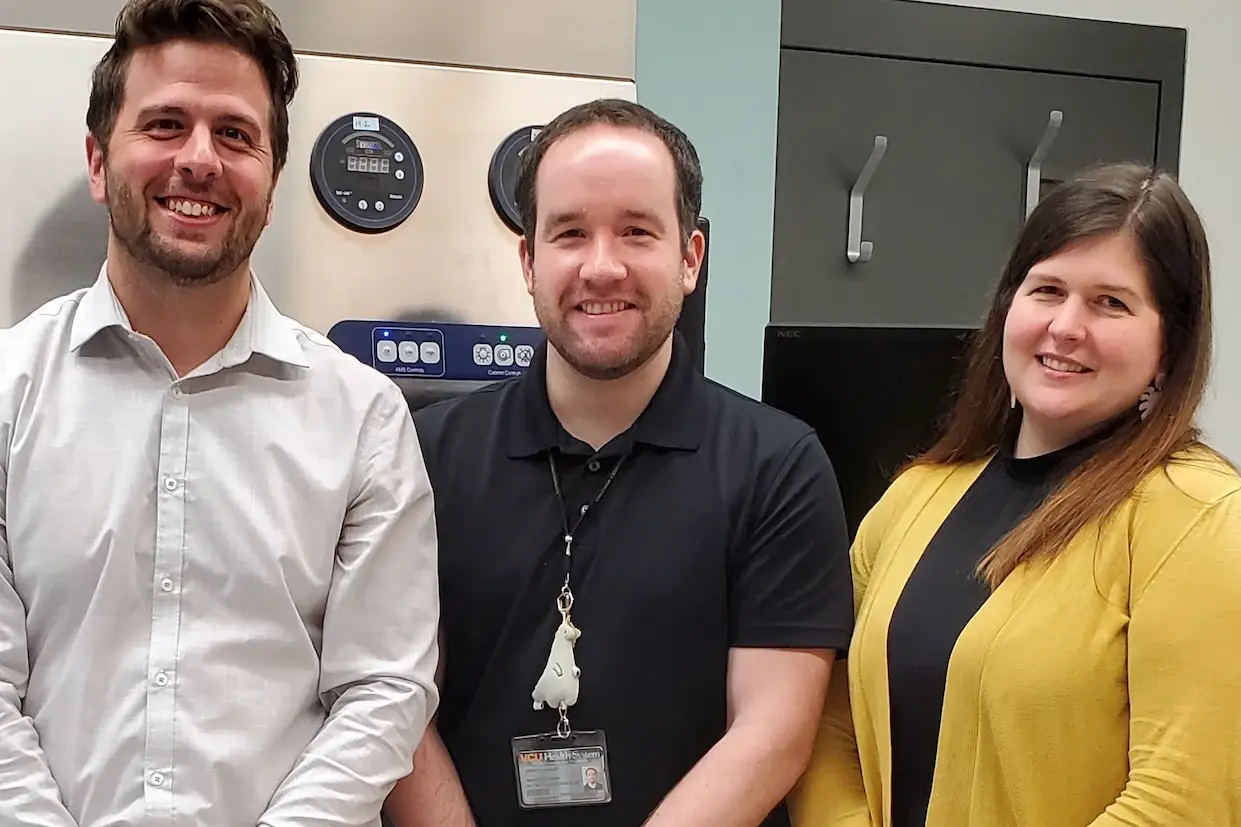
June 18, 2020
Massey researcher develops extremely rapid experimental COVID-19 test
Though Rebecca Martin’s lab prototype is not yet ready for patients, it proves that diagnostic testing for COVID-19 can be done much faster.
Share this story
At Virginia Commonwealth University, researchers have been launching projects to address and assess the impact of the novel coronavirus. Their work ranges from vaccine development and building biobanks to study the virus to examinations of how the pandemic is affecting food access in vulnerable communities. These are some of their stories.
Early diagnosis and isolation of patients with COVID-19 is a keystone for controlling the pandemic. While testing capacity has grown, quick turnaround for patient results remains critical.
To address this need, Rebecca Martin, Ph.D., a research member at VCU Massey Cancer Center, developed an extremely rapid experimental molecular diagnostic assay that decreases the amount of time required to diagnose COVID-19.
“When results can be obtained in just a few minutes, diagnosis and treatment can be provided on the initial care visit without sending samples to a central lab,” said Martin, an assistant professor in the Department of Microbiology and Immunology at the VCU School of Medicine. “This methodology could provide accurate disease diagnostics on-site.”
The project was enabled by a grant from the VCU COVID-19 Rapid Research Funding Opportunity, sponsored by the Office of the Vice President for Research and Innovation and the C. Kenneth and Dianne Wright Center for Clinical and Translational Research. The initiative was established to quickly pivot or expand research addressing the impact of the COVID-19 pandemic on the health system and the community.
Martin worked with VCU M.D.-Ph.D. students Jared Farrar and Joseph Lownik to develop the test by using recent methods of fast nucleic acid amplification to screen for SARS-CoV-2, the causative virus for COVID-19.
Their method is combined with rapid RNA extraction to allow for a total detection time of 3.5 minutes from swab to diagnosis. Compared to conventional testing, this new methodology is significantly faster, making the turnaround time minutes rather than hours.
“[Polymerase chain reaction], a common methodology in research and clinical laboratories, is slow, but sensitive,” Martin said. “Antigen-based testing is fast, but not very sensitive. Our technique is both fast and sensitive.”
Martin’s work builds on research previously conducted by Farrar and Carl Wittwer, M.D., Ph.D., at the University of Utah that demonstrated that PCR — which can produce many copies of a DNA sequence from a small sample — can be performed in 15 to 60 seconds.
“By utilizing the principles of Extreme PCR, our test is currently the fastest described molecular diagnostic test for COVID-19 to our knowledge,” Martin said. “Additionally, our technology can be easily multiplexed unlike other rapid molecular diagnostic methods.”
Martin has filed provisional patent applications for this technology. She will also need to obtain Food and Drug Administration approval before the tests can be used on patients.
Her laboratory prototype is currently not practical for testing with patients at the point of care but proves that molecular diagnostic testing for COVID-19 can be done much faster than what current modalities are capable of doing.
For the next steps in their research, Martin and her team will work with the VCU Health System to test their prototype on patient samples as well as apply for funding for building a point-of-care prototype.
“We look forward to collaborating with the industry to develop an implementation for use in the clinic for COVID-19 diagnostics, as well as syndromic pathogen panels that can be used in testing for many different respiratory pathogens,” she said.
Subscribe to VCU News
Subscribe to VCU News at newsletter.vcu.edu and receive a selection of stories, videos, photos, news clips and event listings in your inbox.









